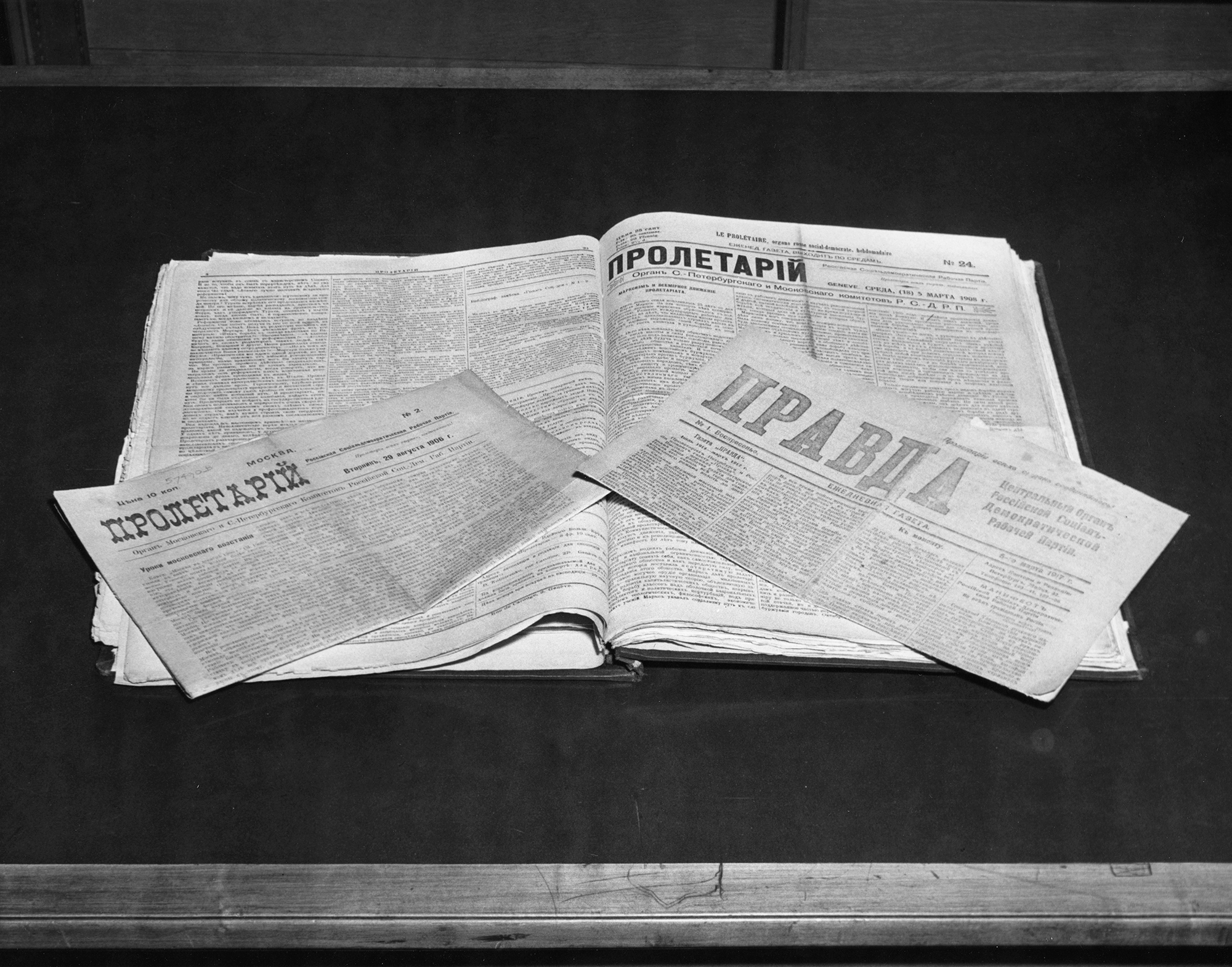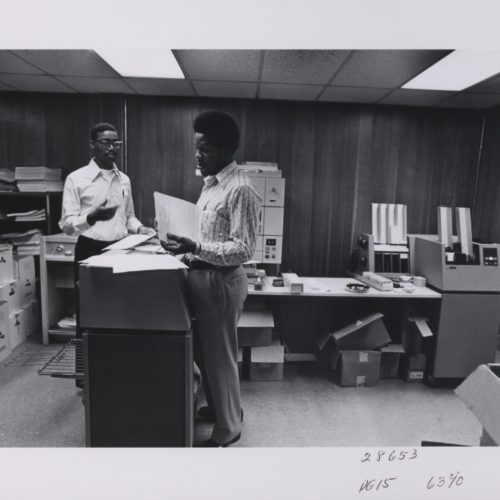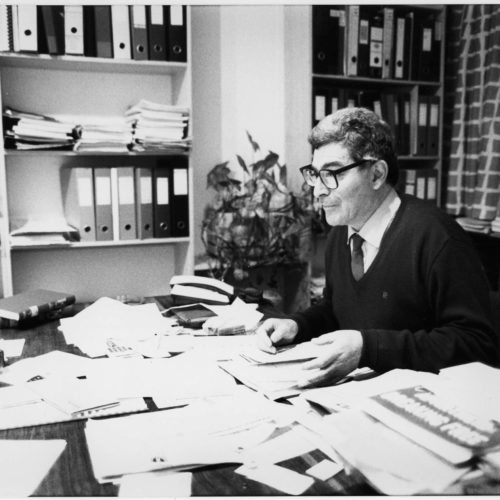Our New Research series on RE:source offers readers a venue to take a peek at recent archival research at the Rockefeller Archive Center. It presents newly published reports submitted by RAC travel stipends recipients who have pursued their studies using our collections. In this edition, the researchers’ reports showcase a wide range of collections that they have explored, covering different time periods, geographic locations, and disciplines. Here, they cite records from the Rockefeller Foundation, the Population Council, and the Social Science Research Council. You are encouraged to explore these reports of our reading room visitors, read about their findings, and note their thoughts about how our collections impact their work.
“American Philanthropy and Russian, Slavic, and Eurasian Studies in the United States, 1920–1940s” by Pavel Tribunskii
In his report, “American Philanthropy and Russian, Slavic, and Eurasian Studies in the United States, 1920–1940s,” Pavel Tribunskii traces the support of US philanthropies in the development of area studies programs for these regions. These disciplines were elevated to new importance by the Cold War. Foundations stepped in to help establish a variety of academic programs to fill large gaps in then-current scholarship about social, cultural, and political history.
These philanthropies quickly discovered that the US diplomatic and intelligence establishment was also interested in this area, which created some deep concerns for them about becoming entangled with governmental agendas. As Dr. Tribunskii observes, in some cases, the foundations either revised their grantmaking as a result, or decided to cancel their participation in new programs and institutes.
Pavel Tribunskii is a senior researcher at the Aleksandr Solzhenitsyn House of Russia Abroad and the Institute of Russian History, Russian Academy of Sciences, Moscow. His field of expertise is the history of Russian liberalism, archival collections of Russian historians, the history of science, the history of Russian Studies, and the history of Russian-language publishing houses abroad.
“The Why, the What, the How: Disney, the Population Council, and the Pre-Production of Family Planning” by Patrick Ellis and Jesse Olszynko-Gryn
Patrick Ellis and Jesse Olszynko-Gryn received a joint research stipend from RAC to study the records of the Population Council regarding a Disney film on family planning. Their report, “The Why, the What, the How: Disney, the Population Council, and the Pre-Production of Family Planning” traces the discussions surrounding the ideas, content, and voice of this particular film. Disney icon Donald Duck is the star of the film and conversations centered on how to employ animation to present a persuasive argument to the targeted audience: young families in developing nations.
The Disney and Population Council teams recognized that they needed to navigate through a series of complicated issues regarding cultural and religious values, including how to present (or not present) contraception and how to discuss gender roles and responsibilities. Lastly, using Donald Duck as spokesperson of these messages included its own set of special challenges. The researchers contextualize their report both in the competitive Cold War atmosphere of the era and in relation to existing studies on population policy and on Disney films.
Patrick Ellis is a historian of film and media at the University of Tampa, with a special interest in how these subjects interact with the histories of cartography, medicine, science, and technology. At the time of his research visit, Jesse Olszynko-Gryn was a historian of science, technology, and medicine at the University of Strathclyde in Glasgow. He recently became the head of the oral history and experimental media lab at the Max Planck Institute for the History of Science in Berlin.
“A Thought Collective without Collective Style? The Western European Activities of the SSRC’s Committee on Transnational Social Psychology 1963–1971” by Verena Lehmbrock
With her stipend funding, Verena Lehmbrock came to RAC to explore the records of the Social Science Research Council (SSRC). Her report, “A Thought Collective without Collective Style? The Western European Activities of the SSRC’s Committee on Transnational Social Psychology 1963–1971” traces the trajectory of one particular committee established by the SSRC in 1963.
She challenges previous depictions of this committee as working within the theoretical framework of a “thought collective.” Instead, focusing on the group’s work in Western Europe, she argues that the Committee on Transnational Social Psychology took on the structure of an open system. From her close reading of the work of the SSRC’s governing Committee on Problems and Policy, she noticed how the SSRC’s own open-ended structure, not constrained by the boundaries of various disciplines, unintentionally influenced the intellectual path of the social psychology committee.
In addition, the pursuit of a diverse, transnational base further worked against the notion of consolidating a thought collective of like-minded social scientists. Thus, only once the Committee on Transnational Social Psychology moved under the umbrella of the International Council for Social Sciences in 1974 did it have an opportunity to reconfigure itself more as a collective.
Verena Lehmbrock is a historian of science at the University of Erfurt, specializing in the social sciences. Her research focuses on the co-evolution of knowledge, economy, and subjectivity from the early modern period to contemporary history.
“A Missed Rebirth: The Rockefeller Foundation’s Involvement in the Economic and Social Development of Sardinia after the Second World War” by Gian Lorenzo Zichi
Gian Lorenzo Zichi’s report looks at development plans for Sardinia in the 1950s. In “A Missed Rebirth: The Rockefeller Foundation’s Involvement in the Economic and Social Development of Sardinia after the Second World War,” he is adding his voice to discussion about the RF’s engagement with Sardinia. The Foundation’s role in eradication of malaria on the island immediately after World War II has been heavily studied (much of this research taking place at RAC). As the researcher observes, the narratives about the subsequent development efforts fall into two camps – those who argue that the RF was disengaged from Sardinia following the completion of its public health efforts, and those who maintain that the Foundation was still involved in the early planning stages.
By thoroughly exploring the Rockefeller Foundation records at RAC, including officers’ diaries, Gian Lorenzo Zichi adds his voice to the latter group, but “with an asterisk” attached to this designation. The archives reveal that the RF was indeed involved with the early stages of identifying factors for improving Sardinia’s socio-economic conditions, but that both internal political considerations in Italy, along with a realignment of the Rockefeller Foundation’s program agenda in the 1950s, derailed any plans for any active role.
Gian Lorenzo Zichi has a Ph.D. (Doctor Europaeus) in History, Cultural Heritage, and International Studies from the University of Cagliari (Italy). He is currently a post-doctoral researcher in the Department of Social and Political Sciences at the university.
About the RAC Research Stipend Program
The Rockefeller Archive Center offers a competitive research stipend program that provides individuals up to $5,000 for reimbursement of travel and accommodation expenses. Learn more on our Research Stipend page.



